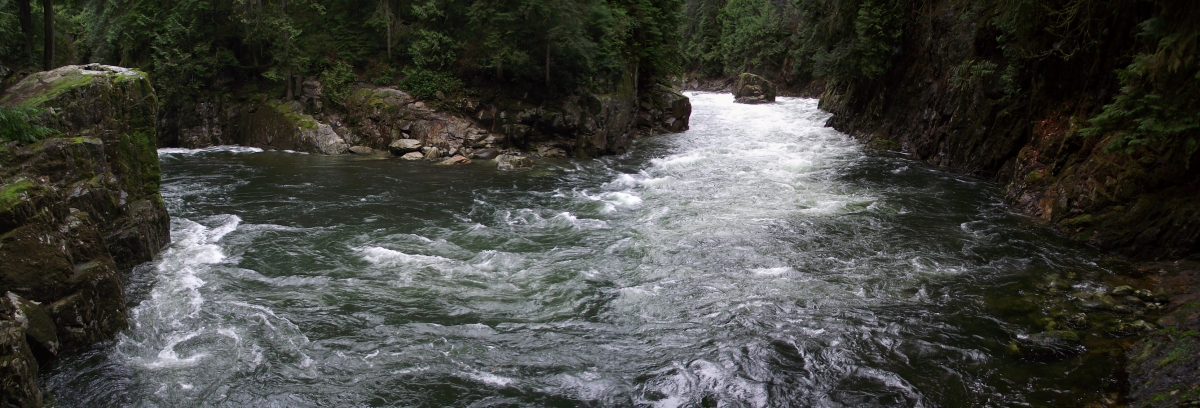Jollymore, A., McFarlane, K. & Harris, L.M. (2016). Whose input counts? Public consultation and the Water Sustainability Act. Policy Brief. Vancouver: Program on Water Governance. Preprint PDF of the policy brief here
Author: michael ko
All of the water that is in our reserves and that is in our territories is ours”: Colonial and indigenous water governance in unceded indigenous territories in British Columbia
Harris, L. & Simms, R. (2016). “All of the water that is in our reserves and that is in our territories is ours”: Colonial and indigenous water governance in unceded indigenous territories in British Columbia. Project Report. Canadian Water Network & Water, Economics, Policy and Governance Network. French version available here.
The main findings of this research and insights for decision makers are summarized in a policy brief, available in English and French.
MULTIPLE ONTOLOGIES OF WATER: POLITICS, CONFLICT AND IMPLICATIONS FOR GOVERNANCE
Yates, J., Wilson, N., Harris, L. (2017). Multiple Ontologies of Water: Politics, Conflict and Implications for Governance. Environment and Planning D: Society and Space 35(5): 797–815.
Whose input counts? Evaluating the process and outcomes of public consultation through the BC Water Act Modernization
Jollymore, A., McFarlane, K., Harris, L. (2017). Whose input counts? Evaluating the process and outcomes of public consultation through the BC Water Act Modernization. Critical Policy Studies, in press.
The accepted manuscript of the published article is available here. A policy brief, summarizing the key messages and implications for decision makers from this article is available here.
Human Right to Water: Contemporary Challenges and Contours of a Global Debate
Mirosa, O. and Harris, L. (2011). Human Right to Water: Contemporary Challenges and Contours of a Global Debate. Antipode 44(3): 932-949.
Contemporary Water Governance in the Global South: Scarcity, Marketization and Participation
New book out: Harris, L., Goldin, J., Sneddon, C. (2013). Contemporary Water Governance in the Global South: Scarcity, Marketization and Participation. Routledge, London. Order your copy here.
This book focuses on three major concepts and approaches that have gained currency in policy and governance circles, both globally and regionally—scarcity and crisis, marketization and privatization, and participation. It provides a historical and contextual overview of each of these ideas as they have emerged in global and regional policy and governance circles and pairs these with in-depth case studies that examine manifestations and contestations of water governance internationally.
The business of water: Market environmentalism in the water sector
Bakker, K. (2014). The business of water: Market environmentalism in the water sector. Annual Review of Environment and Resources 39: 469-494.
Participation, politics, and panaceas: exploring the possibilities and limits of participatory urban water governance in Accra, Ghana
Morinville, C. & L.M. Harris (2014). Participation, politics, and panaceas: exploring the possibilities and limits of participatory urban water governance in Accra, Ghana. Ecology and Society 19 (3): 36.
A summary of the key messages and implications for decision makers from this article is available here.
A Political Ecology of Women, Water and Global Environmental Change
New book out: Buechler, S. and Hanson, A-M. S. (2015). A Political Ecology of Women, Water and Global Environmental Change. Routledge, London.
This edited volume explores how a feminist political ecology framework can bring fresh insights to the study of rural and urban livelihoods dependent on vulnerable rivers, lakes, watersheds, wetlands and coastal environments. Bringing together political ecologists and feminist scholars from multiple disciplines, the book develops solution-oriented advances to theory, policy and planning to tackle the complexity of these global environmental changes. The text includes a foreword by Dr. Leila Harris.
Intersections of gender and water: comparative approaches to everyday gendered negotiations of water access in underserved areas of Accra, Ghana and Cape Town, South Africa
Harris, L., Kleiber, D., Goldin, J., Darkwah, A. & Morinville, C. (2016) Intersections of gender and water: comparative approaches to everyday gendered negotiations of water access in underserved areas of Accra, Ghana and Cape Town, South Africa. Journal of Gender Studies: 22pp.
The survey instruments used in this study can be accessed here for the survey conducted in Cape Town, South Africa, and here for the survey conducted in Accra, Ghana.
